The Centre for Magic and Esotericism
The Centre for Magic and Esotericism
The Centre for Magic and Esotericism runs regular events with visiting speakers. Please see below for upcoming talks.
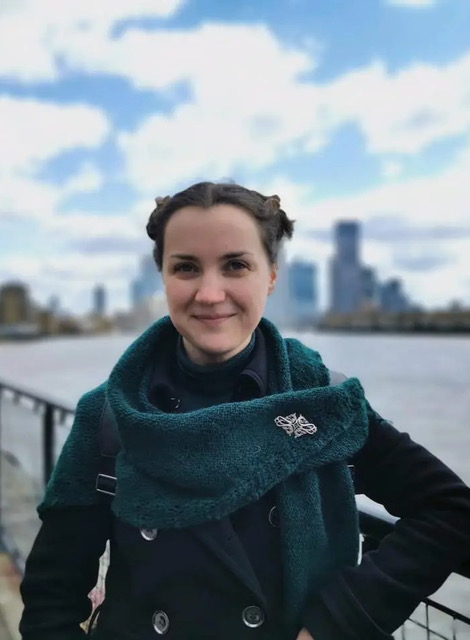
This event will take place Friday, February 13, from 3:30–5:00 PM, in a hybrid format. The room location and Zoom link will be announced soon.
This February, we are pleased to welcome Dr Anna Milon for a hybrid talk exploring the enduring power of folklore in contemporary culture. In The Hunt Rides Again: Our Perennial Fascination with Herne the Hunter and the Wild Hunt, Dr Milon challenges claims that the Wild Hunt has faded from modern British fiction. Instead, she argues that the motif has returned with renewed force in 21st-century pagan writing, non-fiction, and fantasy literature. From re-imagined Hunts in recent novels to new explorations of Herne as a figure of landscape, identity, and myth, this talk asks why the Wild Hunt resonates so strongly today—and what it reveals about modern anxieties surrounding nature, persecution, trauma, and the allure of a mythic past.
Read the full blog post about this upcoming event here
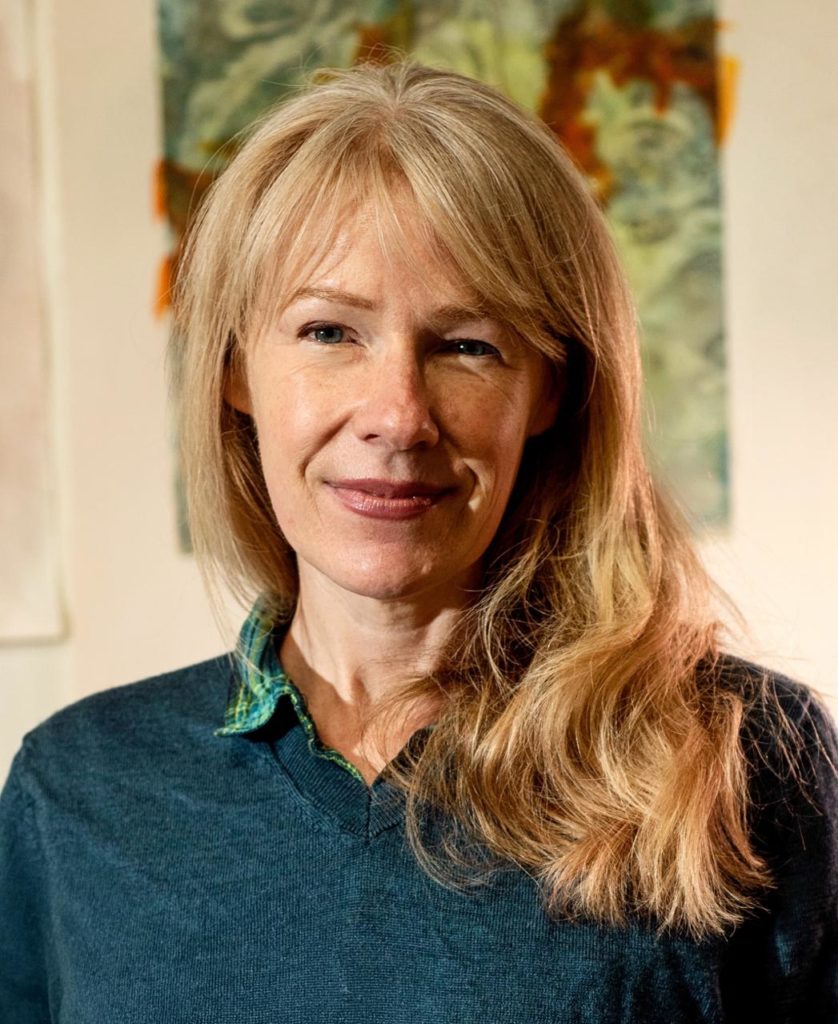
2pm Online Only: https://Universityofexeter.zoom.us/j/94634955899?pwd=MoUAaZCmCsxRbiG6OKGOwTRUGn461z.1
Familiar Clickbait: Conceptions of Witch Familiars, Malicious Social Bots, and the Mechanics of Misinformation from Early Modern Print to Digital Platforms
Abstract: Based on research and interviews from Prof. Heather Freeman’s 2020 podcast series Familiar Shapes, this presentation will establish the parallel between the representation of demonic witch familiars in early modern print media and the function of malicious social bots on contemporary digital platforms in the mid-2010s. These seemingly disparate historical phenomena reveal consistent patterns in the weaponization of the idea of non-human agents as vectors for deception within their respective information ecosystems. Early modern pamphlets detailing witch trials operated as the “clickbait” of their day, using sensationalist narratives to shape popular belief. The early modern familiar, framed not as a simple pet but as a potential “malevolent demon,” finds its digital counterpart in the “bad bot,” an automated entity explicitly designed to manipulate human behavior. The media ecologies that empower these agents also show remarkable similarities. These popular ideas of non-human agents (witch familiars or malicious social bots) amplify moral panics and disseminate the misinformation that often fuels these panics. These conceptions were used (both consciously and unconsciously) to exploit the architecture of social networks—whether a 17th-century village or a global digital platform—to erode trust and sow discord. These weaponized information spaces turned neighbor against neighbor through mechanisms of accusation and denunciation. This comparison also illuminates recurring patterns in societal responses to new (and often disruptive) information technologies —one that is currently playing out between the abstract threat of generative AI and the potentiality of AGI.
Speaker Biography:
Heather D. Freeman (b. 1974) is a Professor of Art in Digital Media in the Department of Art & Art History at the University of North Carolina at Charlotte. She holds an MFA in Studio Art from Rutgers University (2000) and a BA in Fine Art and German Studies from Oberlin College (1997). She is the former Director of D+ARTS (the College of Arts + Architecture’s Digital Arts Center), acting Director of Charlotte Night Owl Interactive (a games and XR cooperative), and Director of the unfunded pilot Center for the Study of Practices and Beliefs.
She is best known for the NEH-funded PRX podcast series Magic in the United States (2023-2024), which explores the history, diverse practices, and personal stories of magic, spirituality, marginalized religions, and folk practices in American history, examining their intersections with cultural conflicts and individual experiences.
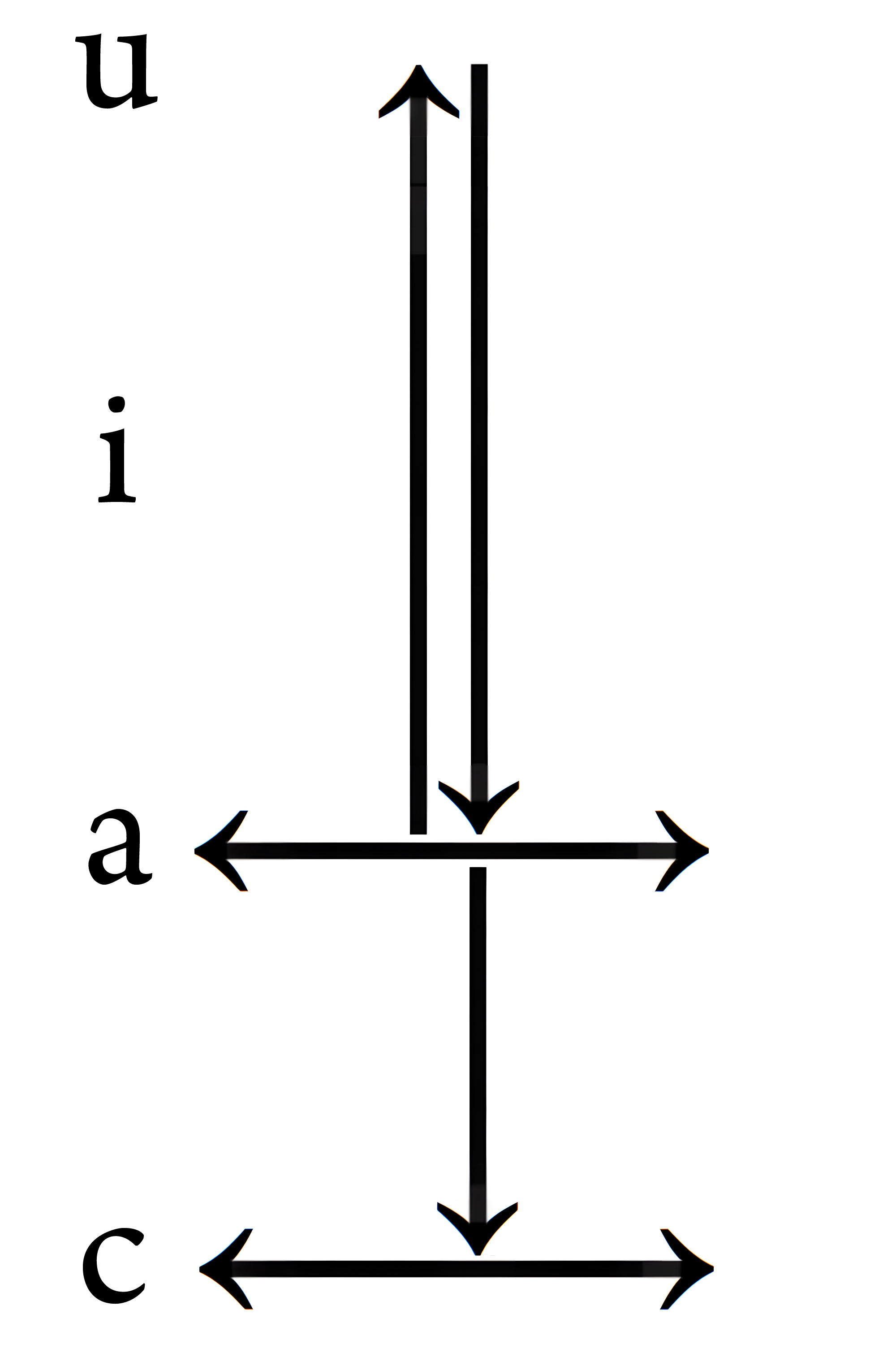
Wise Piety and Divine Worship: Marsilio Ficino’s Theory of Magic
Abstract: The theory of magic of the Florentine philosopher Marsilio Ficino (1433–99), seminal to early modern Platonism and occult thought, is far broader and more ambitious than has been generally understood. It seeks not only, drawing on Plotinus’s theory of cosmic prayer and Arabic astral magic, to attract the influences of the animate heavens, but to raise the soul to the divine and receive higher gifts including prophecy and miracles. This talk places Ficino’s theory of efficacious ritual in the context of its ancient and medieval predecessors, outlines its structure, and introduces its revival of ancient theurgy.
Biography: Merlin Cox’s research focuses on ancient, medieval, and early modern theories of efficacious ritual. He holds a PhD from the Warburg Institute and is working on his book project Godwork: Marsilio Ficino’s Divine Magic.
4.15pm: Refreshments in the IAIS common room.
5pm: Event starts with very brief introduction followed by lecture.
6-6:30 pm: Discussion/Q&As
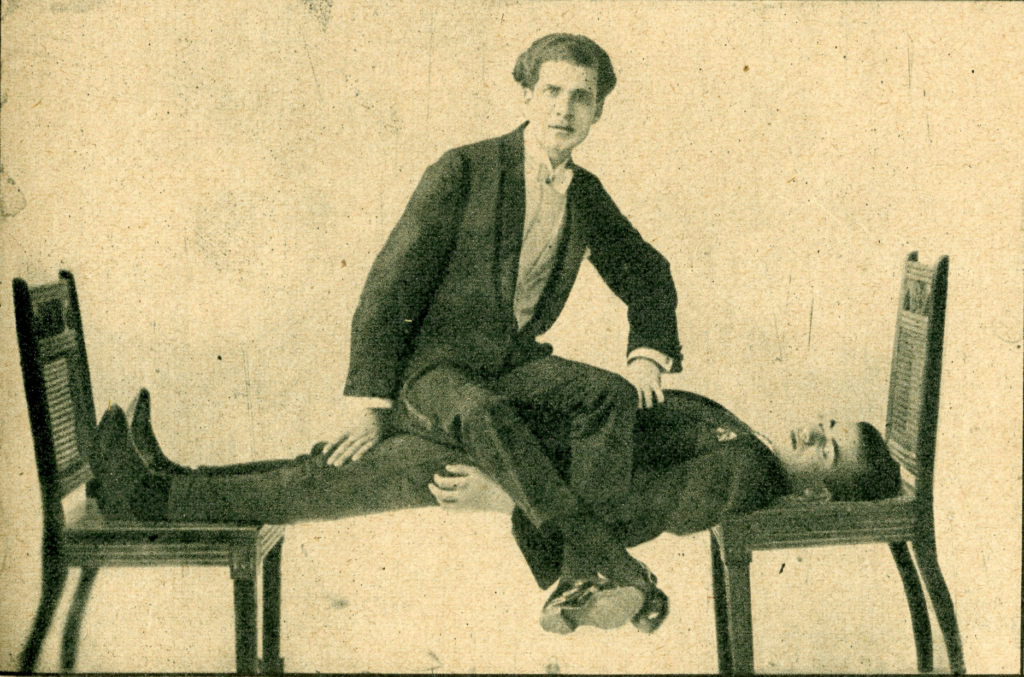
28th May 2025, 1-2pm. Zoom link to be provided (online only)
In 1930s Egypt a moral panic was growing against what some claimed to be an epidemic of Jinn summoners, who exploited the credulous and stole their money. Several high profile court cases against Jinn summoners dominated the newspapers. At the same time, a wave of hypnotists engulfed the popular press. They claimed to be able to use the secrets of this mysterious new science to discover the secrets hiding behind the perceptible world. This paper puts these too phenomena together to look at issues of science, popular religion, and gender in early 20th century Egypt.
Raphael Cormack is Assistant Professor of Arabic at Durham University. He is the author if Midnight in Cairo (2021) and Holy Men of the Electromagnetic Age (2025).
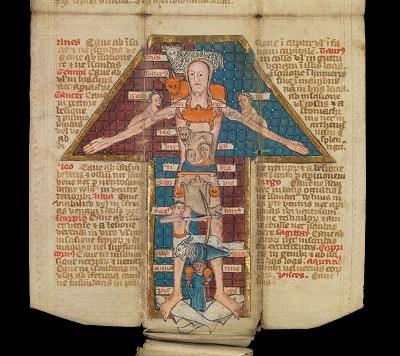
IAIS Lecture Theatre 1
2-3:30 pm, 30th April 2025
In person only
Folding almanacs are magico-medical objects which were worn and used by doctors in fifteenth-century England to perform rituals of medicine, and align the timing of diagnosis, prognosis and treatment to earthly and cosmic cycles. As a multimedia research artist with lived experience of treatment for breast cancer, my curiosity was taken by these hand-held objects and I set out to make my own. Such objects of care implicate a medicine enfolded in well-studied and yet still wondrous lived experiences of being in a body held within a flow of relationships with other bodies, human and non-human. This presentation will explore what I learned through my practice-based research.
The presentation is in person only (not hybrid), since it is based on a written version due for publication by the Springer Journal of Medical Humanities in late spring 2025.
Sarah Scaife is an artist and postgraduate researcher at the University of Exeter in the Department of Communications, Drama, and Film. She uses practice-based and engaged methodologies to explore ‘medicines of deep uncertainty’. This research is supported by UKRI through the South, West and Wales Doctoral Training Partnership.
https://experts.exeter.ac.uk/35413-sarah-scaife

Contemporary Paganism: An Exploration of Modern Traditions and Practices
IAIS Lecture theatres, February 19th, in person only
4.15pm Refreshments in the IAIS Common Room
5pm Event starts
6pm Discussion
This lecture delves into the diverse world of contemporary Paganism, tracing its origins and examining the practices and beliefs that characterise this rapidly evolving religious movement. Beginning with an overview of Paganism’s defining features, such as its non-monotheistic approach to the sacred and its reverence for nature, the discussion will navigate through the intricacies of various traditions, including Wicca, Druidry, and Heathenry. Special attention will be given to understanding how historical influences and modern reinterpretations coalesce to form the dynamic expressions of Pagan spirituality observed today. We will explore key aspects such as ritual practices, ethical frameworks, and the role of magic within these traditions, utilising a comparative approach to highlight commonalities and unique elements across different Pagan paths. By integrating perspectives from theology, anthropology, and religious studies, the lecture aims to comprehensively understand contemporary Paganism as a living and adaptive spiritual practice that continues to shape and be shaped by its adherents.
Dr Angela Puca holds a bachelor’s and a master’s degree in philosophy. In 2021, The University of Leeds awarded her a PhD in Religious Studies, published by Brill with the title “Italian Witchcraft and Shamanism”. Her research focuses on magic, witchcraft, Paganism, esotericism, shamanism, and related currents. Author of several peer-reviewed publications and co-editor of the forthcoming ‘Pagan Religions in five Minutes’ for Equinox, she hopes to bridge the gap between academia and the communities of magic practitioners by delivering related scholarly content on her YouTube Channel and TikTok ‘Angela’s Symposium.’
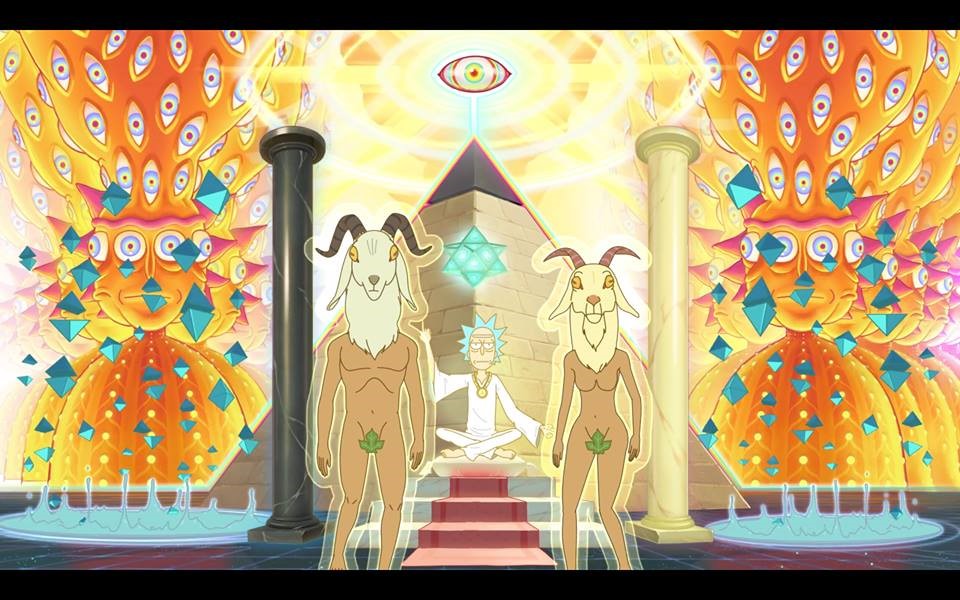
Double, double toil and trouble: Stirring insights into magic and psychedelics
Washington Singer Room 219, 4th December 2024
3:30 – 6:00 pm
The use of psychedelics within a magical framework is at least as old as the historical ethnobotanical records, and probably far far older. As will be illuminated, it remains a widespread global praxis to this day. However, it has been rare within the modern academy for either subject to be taken seriously, and rarer still for both troublesome topics to be explored under the same roof.
This talk will explore the rich and ancient interplay between psychedelics and magic, with particular reference to contemporary practices, both old and new, such as shamanism, neo-shamanism and chaos magic. The approach draws upon the anthropology of consciousness and paranathropology (exploring the framing of some shamanic magical praxis as forms of psi) alongside contemporary research into parapsychopharmacology (the parapsychology of psychoactive substances), and the exploration of the psychology of psi as a parallel to some of the principles of chaos magic. The use of psychedelics is explored via those experiences transcending time, space and (efficient) causality – loosely aggregating divination and thaumaturgy under the concept of psi – and via other forms of exceptional psychedelic experience regarding theurgy under the concepts of mystical experience, entity encounter, possession/incorporation and perspectivism.
Expect a cauldron full of hard toiled scholarship, meandering occult speculation, and a sprinkling of personal mis/adventure.
Dr David Luke is Associate Professor of Psychology at the University of Greenwich. His research focuses on transpersonal experiences, anomalous phenomena and altered states of consciousness, especially via psychedelics, having published more than 100 academic papers in this area, including thirteen books, such as Otherworlds: Psychedelics and Exceptional Human Experience. When he is not running clinical drug trials with LSD, conducting DMT field experiments or observing apparent weather control with Mexican shamans, he manages a small ancient woodland and is a cofounder and trustee of Breaking Convention: International Conference on Psychedelic Consciousness.

Contesting the Stone: Fractious Debates about the Use of Animal Products in Medieval Islamicate Alchemy
IAIS Lecture theatres, November 11th, in person only
4.15pm Refreshments in the IAIS Common Room
5pm Event starts
6pm Discussion
The making of the elixir was one of alchemy’s paramount goals. From its earliest days, practitioners of the ‘Art’ debated the base materials of this elusive transmuting agent, known by various names, including the Philosophers’ Stone. By the Islamic period, this debate appeared to reach a conclusion. In works attributed to Jābir ibn Ḥayyān (d. 808, 812, or 815), an organic alchemy emerged, focusing on the use of animal products (e.g., blood, urine, crania, and hair) for making the elixir, rather than mineral substances.
The Jābirian corpus defends this approach by appealing to ancient (mostly pseudo-epigraphic) sources and more rigorous arguments derived from experimentation. This shift towards organic alchemy sparked considerable debate, particularly from the 10th-century alchemist Muḥammad ibn Umayl, known in the West as ‘Senior Zadith’ and referenced in Chaucer’s Canterbury Tales. In one work, Ibn Umayl fiercely criticises the use of what he sees as impure substances. He claims that the organic alchemists had misconstrued the enigmas of the ancients, particularly those of late antique Egyptian authorities. Ibn Umayl also makes several religiously charged statements against his rivals, questioning how a divine craft, revealed to prophets and imams, could involve such impurities.
While most studies have explored the contested nature of alchemy as a science, few have examined the diverse and often divisive character of Arabic alchemical writing. My paper argues that debates over the prima materia of the elixir highlight the problematic nature of alchemy’s foundational texts. Frequently written in cryptic language, these texts were open to multiple interpretations, leading to disagreements over method that arose as much from esoteric exegesis as from experimental observation
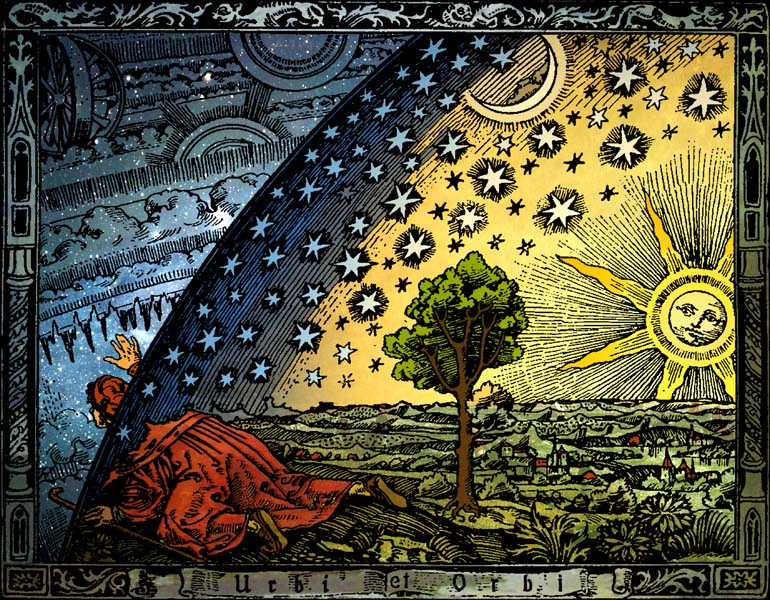
Western Esotericism in the Academy: Historical Schemata, Historicist Aporias, and Emergent Trajectories.
IAIS Lecture theatres, October 2nd, in person only
4.15pm Refreshments in the IAIS Common Room
5pm Event starts
6pm Discussion
ABSTRACT
Since the early 1990s, Western esotericism has become an established academic discipline. Typically, in Europe, it has been fostered as a trajectory under the auspices of Religious Studies.
This lecture will consider the broad historical swathe of the development of Western esotericism, from the early ‘Christian Esotericism’ of the euonymous François Secret (1911-2003), through its foundation as a discipline by Antoine Faivre (1934-2021) notably with his Accès de l’ésotérisme occidental (1986), to the present day. It discusses Faivre’s notion of an air de famille for the connectivity of a diverse grouping of esoteric subjects, along with his criteria for what constitutes esotericism and their subsequent critique. It considers the scope of the original historical shape of the study: its tendency to shift abruptly from the Neoplatonism of the first few centuries AD, to its rediscovery in the Florentine quattrocento, neglecting the medieval period – a situation which has been resolving in recent years.
The lecture will consider some of the historicist aporias and problematics which have arisen over the years, and their attempted resolution. Most notable in this regard is the attempted definition of ‘esotericism’ itself: as ‘Secret Knowledge’ (von Stuckrad); as ‘Rejected Knowledge; (Hanegraaff); as an ‘Empty Signifier’ (Burgunder), and in terms of ‘Cognitive Structures’ (Asprem). In this context, we consider what might be termed the ‘idolatry of definition’ which has led Wouter Hanegraaff to speculate on its ‘unnecessity’. We also consider the paradox posed by the search for a singular definition in the presence of the post-modernist emphasis on pluralism, and its tendency to view a single answer as essentialism.
The discussion broadens to consider esotericism in the wider cultural context, particularly with regard to Max Weber’s concept of die Entzauberung der Welt (the ‘Disenchantment of the World’), and Egil Asprem’s responsa. We further consider the importance of a number of dialectical polarities and intrinsic tensions in academic discourse: the scholar-practitioner divide and its incumbent emic-etic dichotomy, and the notions of ‘occulture’ versus the ‘occult milieu’ amongst others. In particular, we focus on the vexed question of the ‘Western’ epithet in ‘Western esotericism’ – an often polemical debate which is already in its second decade. In this context, we provide a critique of what is often seen as the canonical concept of Saidian Orientalism, and consider esotericism’s role in response to globalisation and anti-globalisation. We conclude with an examination of the emergent trajectories in Western esotericism, notably those evolving from Gender Studies, Esotericism and Literature, and Esotericism and Art.